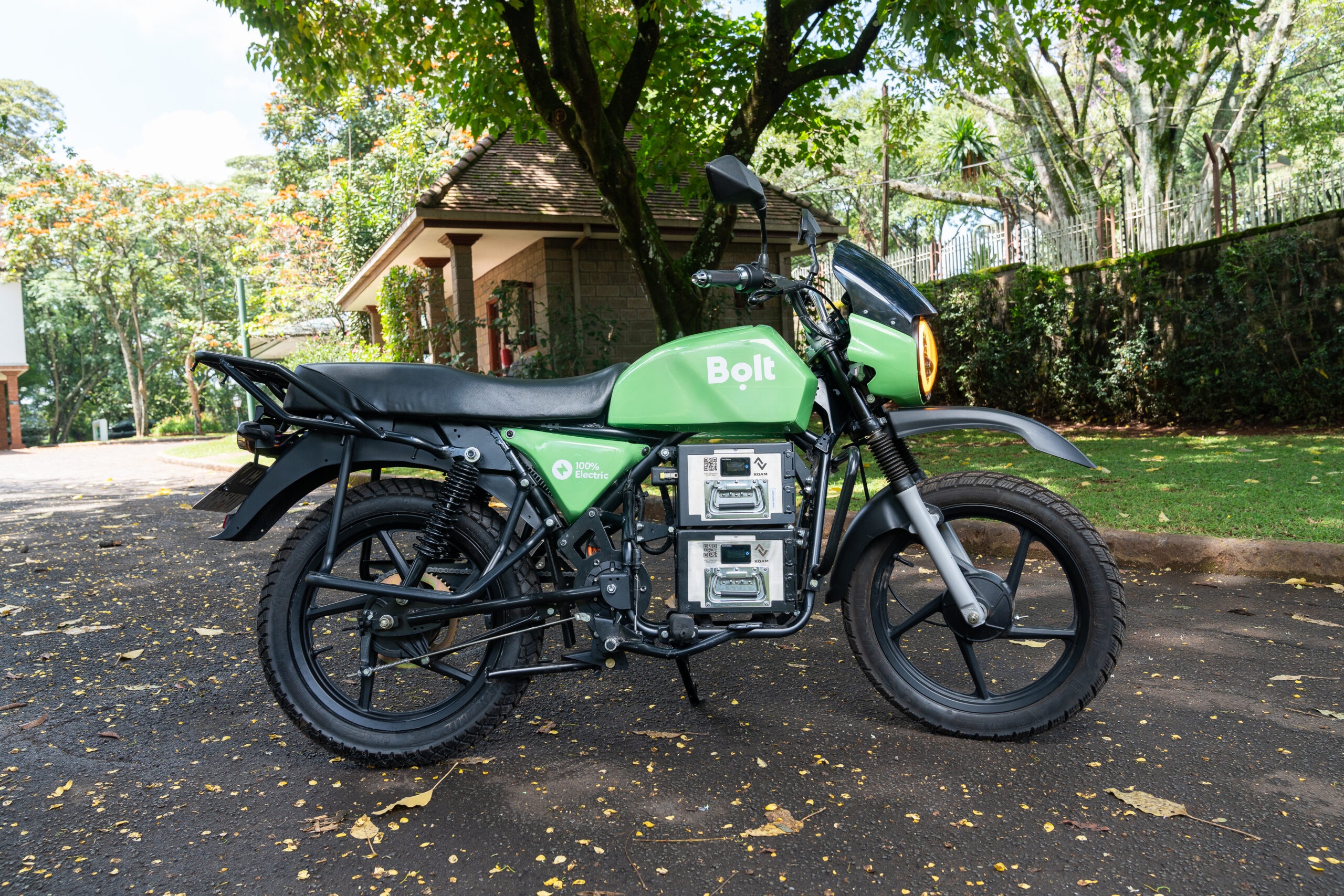The Three Musketeers: Emerging Electric Mobility Solutions in Nigeria


Nigeria’s transportation sector is at the cusp of a clean mobility revolution. The combination of rising fuel costs, sustainability imperatives, and growing technological adoption is driving innovation in both corporate and public transport. In 2025, three pioneering companies, i.e., “Three Musketeers” – Cabzero, Bolt, and Janus Cleantech – introduced electric mobility solutions that promise to redefine how Nigerians commute and how organizations manage staff mobility. These initiatives highlight opportunities for businesses, commuters, and policymakers to align around a shared vision of cost efficiency, innovation, and environmental responsibility.
Case #1 Cabzero: Corporate All-Electric Fleet Solution
Launched in April 2025, Cabzero is Nigeria’s first all-electric corporate fleet service. It targets businesses that want to cut operational costs while strengthening Environmental, Social, and Governance (ESG) credentials. Key features include:
- Exclusive Model – A dedicated fleet leased at a fixed monthly fee, offering predictable costs and operational control.
- Shared Model – Employees book rides via the Cabzero app, with billing centralized to the company. This model supports hybrid workforces and firms with flexible commuting needs.
Cabzero positions itself as a corporate partner that not only reduces fuel dependency but also enhances the employee experience through reliable, modern mobility solutions.
Register for Tekedia Mini-MBA edition 18 (Sep 15 – Dec 6, 2025): registration continues.
Tekedia AI in Business Masterclass opens registrations.
Join Tekedia Capital Syndicate and co-invest in great global startups.
Register for Tekedia AI Lab: From Technical Design to Deployment.
Case #2 Bolt: Electric Tricycle Rollout in Lagos
In May 2025, Bolt expanded its footprint in Nigeria by introducing 25 electric tricycles in Lagos, in partnership with SGX Mobility. This marks Bolt’s first foray into Nigeria’s EV tricycle segment, complementing its existing operations in cities like Jos and Uyo. Highlights of the initiative include:
- Cleaner Transport – Zero-emission rides compared to traditional petrol-powered tricycles.
- Cost Relief – Aimed at offsetting rising fuel costs impacting both riders and drivers.
- Market Testing – Bolt is adopting a cautious rollout, adjusting leasing and deployment strategies based on market reception.
Bolt’s initiative reflects a measured but forward-looking approach, balancing sustainability goals with economic realities for low-income drivers.
Case #3 Janus Cleantech: Dual-Purpose Electric Tricycles
In September 2025, Lagos-based clean energy company Janus Cleantech introduced Nigeria’s first passenger and cargo electric tricycles, named Ketekete and Ayoka. Unlike other players, Janus integrates mobility with energy access, making its solution particularly distinctive. Key innovations include:

- IoT-Enabled Design – Vehicles run on swappable lithium batteries equipped with Vehicle-to-Home (V2H) and Vehicle-to-Business (V2B) capabilities.
- Mobile Power Solutions – The e-trikes double as power banks, providing electricity for households and small businesses.
- Driver Affordability – With petrol tricycles consuming up to 60% of a driver’s daily income, Janus’ e-trikes lower operational costs, enabling long-term savings.
Janus Cleantech’s dual approach—transport plus energy—positions it as both a mobility provider and an energy enabler, directly addressing Nigeria’s challenges around energy poverty and fuel dependency.
Market Context and Opportunities
The combined entry of Cabzero, Bolt, and Janus Cleantech underscores a rapidly evolving Nigerian EV market. Common drivers include:
- Rising Fuel Prices – Escalating costs of petrol make EV solutions increasingly attractive.
- Infrastructure Gaps – While CNG and other alternatives exist, limited infrastructure hampers large-scale adoption.
- Sustainability Imperatives – Businesses and individuals are seeking greener, more affordable alternatives.
- Energy Access Needs – Janus Cleantech’s innovation taps into Nigeria’s broader challenge of unreliable electricity access.
Strategic Implications

For Businesses:
- Adopt EV Fleets Early: Leverage Cabzero’s corporate model to manage commuting costs while boosting ESG alignment.
- Support Staff with Flexible Mobility: Hybrid workforce models can benefit from Cabzero’s Shared Model or Bolt’s EV tricycles for staff transportation.
- Explore Dual-Use Solutions: Businesses in energy-constrained areas can benefit from Janus Cleantech’s vehicles as both transport and backup power sources.
For Policymakers:
- Provide Incentives: Offer tax waivers, reduced import duties, and subsidies for EV purchases and fleet adoption.
- Expand Charging & Battery Swap Infrastructure: Invest in charging stations and battery swap hubs to support large-scale adoption.
- Support Local Innovation: Encourage partnerships with companies like SGX Mobility and Janus Cleantech to strengthen Nigeria’s EV and battery manufacturing ecosystem.
- Integrate Energy and Mobility Policy: Recognize and support dual-use innovations like Janus Cleantech’s V2H/V2B features as part of national electrification strategies.
Ultimately, the launches of our “Three Musketeers” in Clean Energy — Cabzero, Bolt, and Janus Cleantech — represent a pivotal shift in Nigeria’s transportation sector. Cabzero is redefining corporate fleet management, Bolt is expanding sustainable public transport, and Janus Cleantech is bridging the gap between mobility and energy access. Table 1 shows how Cabzero, Bolt, and Janus Cleantech occupy different but complementary niches: Cabzero ? corporate fleet management. Bolt ? everyday urban transport. Janus Cleantech ? dual transport-energy solution for drivers and communities.
Table 1. Comparative Overview of Emerging EV Mobility Players in Nigeria
| Company | Focus Area | Service Model | Unique Features | Target Audience |
| Cabzero | Corporate staff mobility. | Exclusive Model: Dedicated fleet leased at fixed monthly fee.
Shared Model: App-based ride booking, billed to company. |
Corporate ESG alignment.
Predictable budgeting. Hybrid workforce support. |
Medium-to-large organizations. |
| Bolt | Public ride-hailing (urban transport). | EV tricycles integrated into Bolt app.
Lease structure for drivers. |
Zero-emission keke rides. Fuel cost relief for drivers. Market-testing rollout. |
Commuters in Lagos & other cities. |
| Janus Cleantech | Passenger & cargo e-tricycles + energy. | Ketekete (passenger) & Ayoka (cargo) e-trikes.
Battery swap model. |
IoT-enabled. Swappable lithium batteries. Vehicle-to-Home/Business (mobile power bank). |
Drivers, SMEs, households with energy needs. |
Sources: Compiled from Asaolu (2025), Business Insider Africa (2025), and Omoniyi (2025).
Together, these players not only address the pressing challenges of rising fuel costs and environmental impact but also position Nigeria at the forefront of Africa’s electric mobility revolution. With the right mix of business adoption and supportive policy frameworks, Nigeria has the potential to scale these innovations into a robust ecosystem that delivers sustainable growth, cost efficiency, and improved quality of life for its people.
Background reading:
Madichie, N. O., & Nkamnebe, A. D. (2025) Africa’s Indigenous Automotive Innovation: A Focus on Innoson Vehicle Manufacturing and the Future of Electric Vehicle Marketing, Journal of Sustainable Marketing, 1-16 https://doi.org/10.51300/JSM-2025-151





